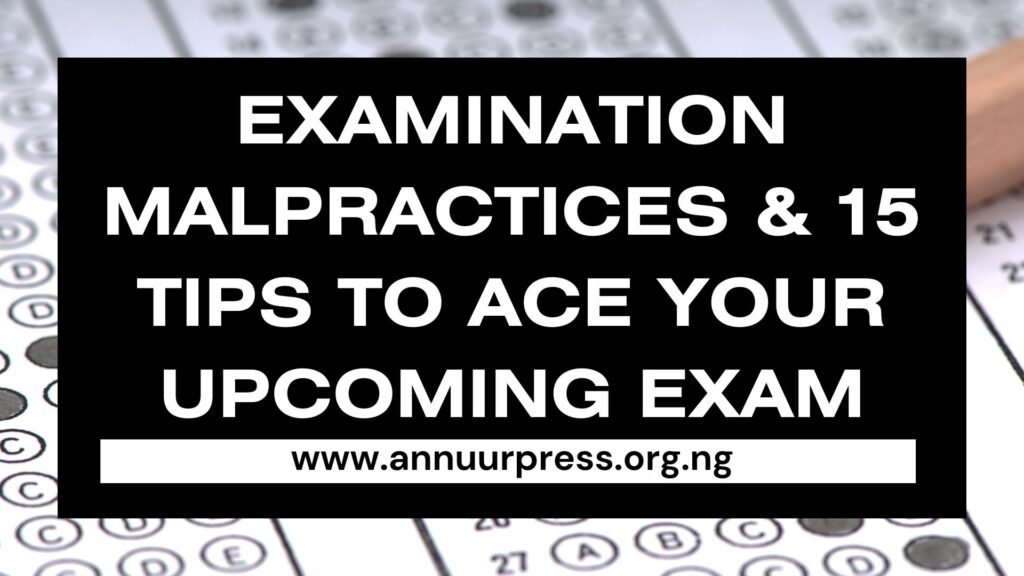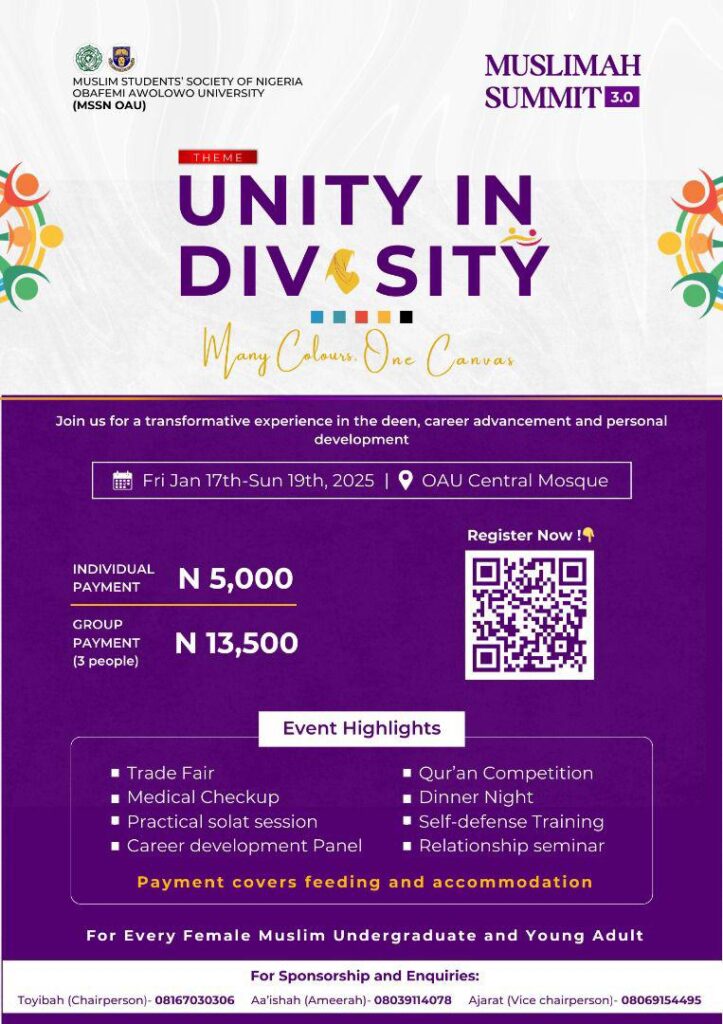Examination malpractices are a widespread and troubling issue in education, harming academic integrity and the quest for knowledge. It is very rare in institutions these days to find someone who has not engaged in one or another form of examination malpractice. These unethical actions include a variety of behaviors that damage the fairness and reliability of exams. The effects go beyond school, affecting careers and the credibility of both individuals and educational institutions.
In Islam, honesty and integrity are fundamental values, making such acts not only unethical but also sinful. Shaykh Ibn ‘Uthaymeen (may Allah have mercy on him) considered cheating in exams as haraam. He said: “Cheating in exams is forbidden; in fact, it is a major sin, especially since this cheating will lead to a number of things in the future. It will affect the person’s salary, position, and other things that are needed in order to succeed” (Fataawa Noor ‘ala ad-Darb, 24/2).
Cheating is explicitly condemned in Islam. The Prophet Muhammad (peace be upon him) said, “Whoever cheats us is not one of us” (Sahih Muslim). This hadith clearly states that cheating is unacceptable and goes against the principles of Islam.
As Muslims, several conditions bind us, one of which is abiding by the instructions from Allah and His Messenger (may Allah’s blessings and peace be upon him). We have to be conscious of the principles of Islam. This makes us better Muslims and helps us attain the favor and mercy of Allah (Subhaanahu Wa Ta’ala).
In this article, I will take you through the various forms of examination malpractices, how to avoid them, and some tips for the upcoming examinations. May Allah ease our affairs.
Forms of Examination Malpractices
1. One common form of malpractice is cheating, which can happen in many ways. Traditional methods like copying from a neighbor during an exam are still common, often helped by strategic seating or secret signals. Modern technology has introduced more advanced cheating methods, such as using small electronic devices to access information or communicate with others. Unauthorized materials like hidden notes, cheat sheets, or programmed calculators are also a persistent problem. These practices not only give unfair advantages but also undermine the efforts of honest students. We all know that honesty is a core principle in Islam, emphasized repeatedly in the Qur’an and Hadith. The Qur’an says, “O you who have believed, fear Allah and be with those who are true” (Qur’an 9:119). This verse highlights the importance of truthfulness, which extends to all aspects of life, including examinations.
2. Impersonation is another serious malpractice, where someone takes an exam for another person, often for money or favors. This completely defeats the purpose of exams, which is to assess individual knowledge and skills. Sometimes, this goes beyond single exams, with people fraudulently obtaining degrees. The long-term effects can be severe, affecting employers and institutions that trust these credentials.
3. Collusion, or unauthorized collaboration, is also a major threat to academic integrity. This includes group cheating, where students work together to share answers during an exam. Collusion with teachers, invigilators, or other officials is particularly concerning as it breaches trust and fairness. Such actions erode confidence in educational systems and the qualifications they provide.
4. Bribery and corruption in exams represent systemic problems. This can involve students or families bribing officials, teachers, or administrators for advantages like early access to exam questions or altered results. Accepting such bribes corrupts the entire educational system. Combating this requires strict oversight, ethical training, and a culture that prioritizes integrity over personal gain.
5. Technological advancements have made maintaining exam integrity even harder, especially with online assessments. Students use various gadgets and software to cheat, such as smartwatches, hidden earpieces, and special calculators.
How to avoid Examination Malpractices
1. Effective preparation and time management are crucial for academic success and maintaining integrity. Developing regular study habits is key, as it allows students to build knowledge consistently and avoid the panic of last-minute cramming, which can sometimes lead to the temptation to cheat. Alongside this, mastering effective time management skills is essential. By carefully planning and organizing study schedules well in advance of exam dates, students can ensure they have ample time for thorough preparation. This approach not only reduces stress but also promotes a deeper understanding of the material, eliminating the perceived need for dishonest shortcuts.
2. Familiarizing oneself with examination regulations and strictly adhering to guidelines is essential for academic integrity. Students must thoroughly understand the rules set by their examiner and follow all instructions provided by exam invigilators. As muslims, following rules is considered fundamental, provided they don’t conflict with the instruction of Allah and His Messenger. Being attentive to and respecting exam protocols demonstrates personal integrity and contributes to a fair and equitable testing environment for all students.
3. Developing academic integrity is fundamental to a successful and fulfilling educational journey. Valuing honesty in all academic pursuits is not just an institutional requirement, but also a virtuous act that, as highlighted in Islamic teachings, brings one closer to Allah. When facing challenges with course material, it’s crucial to seek help ethically. This can involve reaching out to teachers, tutors, or classmates in ways that maintain academic honesty. Additionally, the modern educational landscape offers numerous ethical resources. Students can leverage online tools, including generative AI, interactive platforms, and educational videos on youtube and other platforms, to enhance their understanding of key concepts. Exploring these resources before exams, along with seeking guidance from knowledgeable individuals, can significantly boost comprehension and preparation while maintaining integrity.
4. Avoiding peer pressure is essential in maintaining academic integrity and personal values. It’s critical to resist any urges or invitations to engage in group cheating or collusion, regardless of social pressures. Peer pressure can be highly detrimental to youth, potentially leading them astray from their moral and academic principles. Instead, it’s advisable to associate with peers who embody Islamic principles in their lives to exert a positive influence and discourage participation in unethical activities. Forming study groups with knowledgeable, like-minded individuals who are committed to academics can be an excellent strategy. These groups not only provide mutual support and encouragement but also create an environment conducive to ethical learning and academic success.
5. Taking advantage of available counseling and support services is a crucial yet often overlooked aspect of exam preparation. These resources can be instrumental in managing stress and anxiety related to exams, which are common challenges faced by students. Counseling services provide professional support to help students develop effective coping mechanisms, improve their mental stability, and maintain motivation throughout their academic journey.
Engaging in examination malpractices harms one’s spiritual state. It breeds dishonesty, fosters a habit of deceit, and distances a person from Allah’s guidance. This leads to a corrupted heart, making it harder to seek forgiveness and perform righteous deeds sincerely. Examination malpractices not only affect the individual but also society. When people engage in cheating, it undermines the integrity of the educational system and devalues genuine achievements. This creates a culture where dishonesty is normalized, affecting the moral fabric of society.
TIPS for Upcoming Examination
1. Thorough Study: Read all course materials comprehensively, covering everything taught throughout the semester. This ensures a deep understanding of concepts and thorough preparation, reducing the risk of encountering unfamiliar questions.
2. Spiritual Preparation: Pray to Allah for ease, increased knowledge, and understanding. Seek divine assistance for success in exams and all endeavors.
3. Seek Forgiveness: Sincerely ask Allah for forgiveness, as sins may hinder blessings. Consider observing Tahajjud (night prayers) and make a conscious effort to abstain from sins.
4. Practice Charity: Engage in charitable acts to invite Allah’s mercy and favor.
5. Past Question Practice: Solve past exam questions at least twice before the exam. This familiarizes you with question patterns and potential repeats. Pay attention to questions from tests, assignments, and class exercises.
6. Understand Lecturer Preferences: Learn about each lecturer’s examination style and expectations. Consult senior students for insights on how to prepare effectively for different instructors.
7. Choose Companions Wisely: Surround yourself with beneficial friends who contribute positively to your academic journey. Don’t hesitate to distance yourself from influences that don’t align with your goals.
8. Seek Help: Be open to asking colleagues for assistance when needed.
9. Time Management: Create a study schedule that allows for regular, consistent study sessions leading up to the exam.
10. Active Learning: Engage in active study techniques like summarizing, teaching concepts to others, or creating mind maps to enhance understanding and retention.
11. Health and Well-being: Maintain a balanced diet, regular exercise, and adequate sleep to support cognitive function and manage stress.
12. Mock Exams: Conduct self-tests or mock exams under timed conditions to simulate the actual exam environment.
13. Review Strategies: Develop effective review techniques, such as summarizing key points, creating flashcards, or participating in study groups.
14. Exam Technique: Familiarize yourself with effective exam strategies, such as reading questions carefully, managing time during the exam, and reviewing answers if time permits.
15. Utilize Resources: Make use of available academic resources, including office hours, study guides, and online materials provided by your institution.
Exam Day
On the day of your exam, here are some tips and Duas for you: CLICK HERE to read more.




